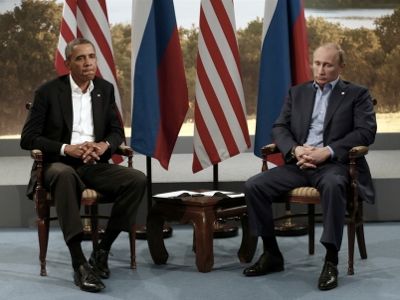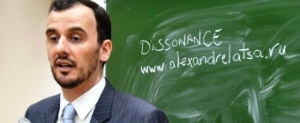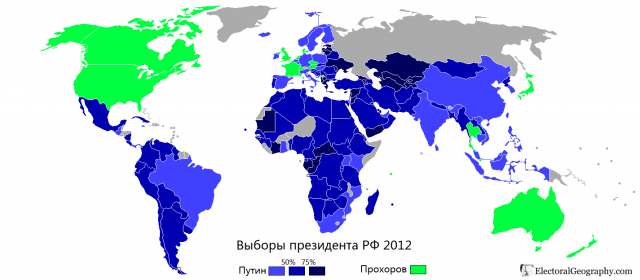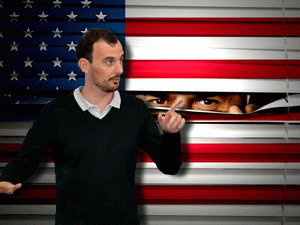Many French speaking readers have asked me, via Facebook, details of the relationship between the street demonstrations of the past three months, and those that followed the presidential election.
Two questions often come back: “For whom did the street protesters vote» and “Who does truly represent the Russian opposition”?These questions arise especially as these demonstrations from the opposition demonstrations were not expected and that it was very difficult to find adominant political line within it. We saw a very large number ofpolitical leaders of various tendencies and a lot of different claims.
To the question “Who does truly represent the Russian opposition”. I could answer that there is in the Duma (the Russian parliament) 226deputies of United Russia, 92 Communist deputies, 64 deputies of Fair Russia and 56 deputies of Liberal-Democratic Russia. But of course, the questions referred specifically to thisopposition that demonstrated in the streets. In the end, Johnasked me “about the arrests that took place during the opposition meeting on Monday night, the day after the election”. Were we attending a tightening up of the Russian power, and a totalrape of the freedom to manifest, that some peacefuldemonstrators were asking for, just like in all democracies worthy of the name?
The headlines in the French press, which denounced a muscled repression from the power in place, could indeedsuggest so. Let us go back to these three months of demonstrations. Following thegeneral elections in December,some images of fraud looped in the media. Apart of the civil society but also some representatives of minority political parties decided to call for a demonstration of the elections’ results. They asked the Chairman of the Electoral Commission to resign, and called for the cancellation of the elections in order for some new and honest elections to be able to take place. A huge number of websites and Facebook pages quickly set up through the Internet social networks, calling for a demonstration.
This marketing buzz works pretty well and consequently a first demonstration was held on the Marais square on December 10, 2011, involving perhaps 35,000 to 40,000 people. The demonstration brought together side by side some of the Moscow gilded youth as well as dozens of sub-political factions that were not candidates for a national representation, i.e.radical nationalists, anti-fascists and political liberal parties but also communists. A second meeting was held on December 24, Sakharov Avenue, with 40,000 to 50,000 people gathering, and again with this new and unlikely coalition of disparate political movements andpeople from the civil society as well as opposition figures including some from the show –business.
An interesting fact that the press has not underlined much is that these two demonstrations were held without any serious incidents, if not at the end of the second meeting, when radicals from the right-wing attempted to climb onto the platform by force. Finally, on February 4,a third unitary meeting took place, on the Marais square again, gathering between 40,000 to 50,000 people. Who were these people who defied the cold to go demonstrate with so much cheerfulness? Sociological studies and surveys have shown since then that the majority of them were upset with the election results and wanted to have their voice heard. Their background was mainly the muscovite upper-middle class. The problem with this educated and at times, westernized class that grew rich during the last 10 years, is that it has not formed a political party to make its voice heard, and it has no leader whom to trust.
Those demonstrations though were attended by many political groups, as well as associations and historical leaders of the opposition like Boris Nemtsov, Gregory Iavlinskii or Garry Kasparov. For them it was the right occasion to take advantage of the events in order to to boost their popularity and emerge as leaders of this unhappy crowd. None of them hasreally emerged, but new figures have appeared, for example Michael Prokhorov, the nationalist-liberal blogger Alexei Navalny or the extremist left-wing Sergey Udaltsov. Although they were part of opposing tendencies on the political spectrum, their «anti-Putinism» primary allowed them to a temporarily alliance.
That’s probably where the rub is.
The muscovite“upper-middle class” who protested for three months hasgenerally a high level of education and usually a good standard of living. It neither wantedto deal with far right or far left incidents, nor rehabilitate losers from another political era. This is probably the reason why most of the protestors have preferred not to participate tothe presidential elections but have probably predominantly chosen to support Michael Prokhorov, whom they considered as the most modern and reliable candidate.
The results of the presidential election showed that Michael Prokhorov who is defending a rather liberal and pro-European political line, has easily seduced this “Europeanized” upper middle class as well as an electorate that wanted a constructive “anti-system” vote. Undoubtedly, he is the big winner of the past three months’ wave of demonstrations, this demonstration being first of all legalistic and political. It will be necessary to see what Michael Prokhorov will now do, he who in the coming weeks should create a new right wing political party on the Russian chessboard. Now what about the arrests that occurred during the recent demonstrations and why did the latter gather less protesters?
As opposed to what a part of the French press’s headlines read, this is not the pseudo-repression that weakened the mobilization but rather the fact that the vast majority of the protesters in December 2011 did not identify with the extremist emerging leaders. In the last but one demonstration on Pushkin Square Monday March 5, Michael Prokhorov has indeed been booed by the few thousand protesters who were present.
Last Monday, he did not come to the opposition demonstration on Arbat Avenue. Therefore it is no surprise that these demonstrations have been able to gather only and respectively 10,000 and 8,000 protesters.It is no surprise either that in both cases, the demonstrations have turned to a confrontation with the police, as the organizers refused to leave the premises at the end of the demonstrationand as they deliberately chose to let nationalist groups or radicals from the extreme left, walk to the Kremlin.
The conclusion to all of this could be held in two words, the ones that the new President of Russia addressed to these same opposition factions on March 7: “Be serious”.






